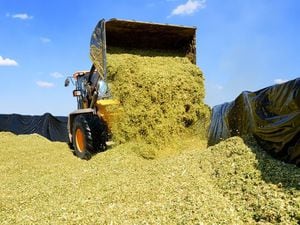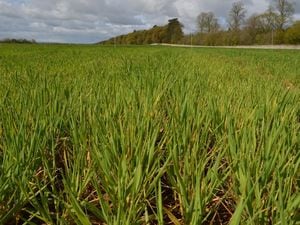After Brexit, who will bring home the harvest?
Shropshire’s rich harvest lasts throughout the summer from soft fruit, vegetables and arable crops, through to apples and grapes in the autumn.

We even harvest confetti and whatever the crop, the weather over the preceding months plays a great part in its success or otherwise.
These days another factor is crucial to getting produce to market as across the county - the hundreds of migrant workers employed to help with harvesting. A recent survey of CLA members demonstrated how vital these workers are to the rural economy and the impact that Brexit is already having on the sector.
According to the survey, restricting access to migrant workers once the UK leaves the EU would negatively impact the profitability, efficiency and viability of more than half of rural businesses, and Shropshire will be no different.
Indeed, Brexit is already causing problems for many rural employers. Forty four per cent of those surveyed said they had experienced a reduction in the availability of migrant labour over the past year.
While most respondents employed fewer than 10 migrant workers per business, others employed many more, so it is imperative that the Government addresses this issue now. We need reassurance that after Brexit there will still be a flexible, skilled and secure workforce to help rural businesses to plan for the future, invest in their businesses and secure or create jobs.
The impact is not restricted to crop pickers. The survey also highlighted that one in 10 of those surveyed employ migrant workers in managerial positions and almost a quarter of respondents said they worked in skilled roles. Although overseas labour peaks during harvest months, the survey shows migrant workers are employed all year round within rural businesses.
The question of where workers will come from, if EU migrant labour is now longer available, is an important one. The CLA survey revealed that almost 90 per cent of respondents tried to recruit locally but the majority found it difficult to fill positions with British workers, and the reasons often relate to the work being in rural locations where there is limited affordable housing and restricted public transport, which can make the early starts difficult to achieve.
Given there is already an acute shortage of labour in the industry, we’re pressing for a new seasonal agricultural workers scheme to be introduced immediately, not after the UK has left the EU. Similar schemes have worked well in the past and allow migrants to enter the UK for a set period of time and for a specific job but with no right to remain afterwards.
Above all, we need certainty that after Brexit there will still be a flexible, skilled and secure workforce to help rural businesses to plan for the future, invest in their businesses and secure or create jobs.
Caroline Bedell is Director, CLA Midlands





